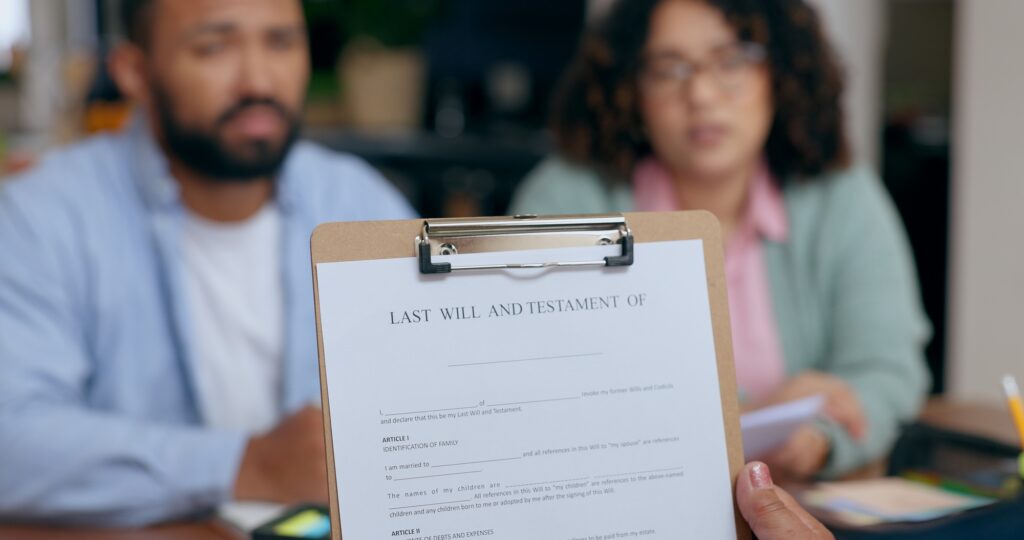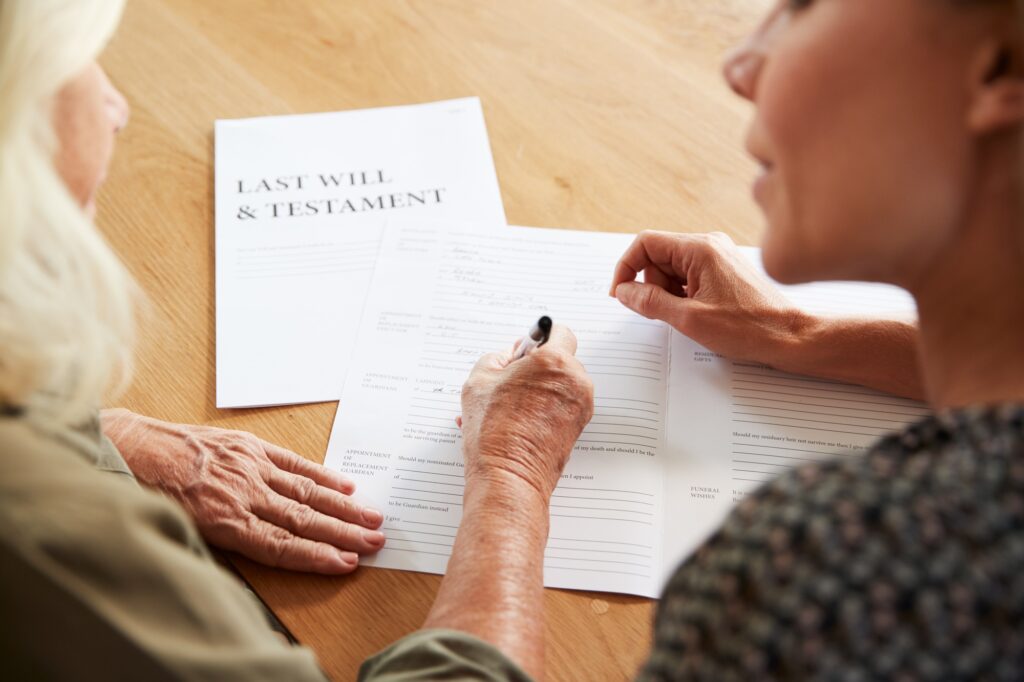What happens if a will is not signed in Florida?

A Florida last will and testament will not be probated or enforced if it has not been signed by the testator or by one of the required witnesses. In order for a last will and testament to be probated in Florida, the will must (1) be signed by the testator at the end of the […]
Does a living will need to be notarized in Florida?

No, a living will does not need to be notarized in Florida. However, it is often wise to have the document notarized anyway. Requirements of Florida Living Will The requirements of a living will are found in section 765.302 of the Florida Statutes. Those requirements are: The living will must be signed by the principal […]
Are no contest clauses enforceable in Florida wills?
What is a “No Contest” or “In Terrorem” Clause in a Will or a Trust? A “no contest” clause is a portion of a will or trust that punishes a beneficiary for contesting that same will or trust. Most commonly, a “no contest” clause cuts out anyone from the will if they sue to get […]
How do you move income into a Qualified Income Trust?
Income is moved into a qualified income trust by transferring the income into the trust bank account before the last day of the month. If you wait until after the last day of the month, the income becomes countable for Medicaid purposes. A qualified income trust (QIT) is used to help disabled individuals qualify for […]
Does a personal representative need to be a family member?

No, in Florida, a personal representative does not need to be a family member or spouse, as long as the personal representative is a legal resident of the state of Florida. Who can be named as personal representative? A personal representative, also commonly known as an executor, is in charge of your estate after you […]
Should you include funeral wishes in your will in Florida?

Yes, you should include your funeral wishes in your Florida will. But you should also communicate your burial wishes to loved ones in other ways. Wills often are not read until after the funeral, so they should not be solely relied on to communicate your funeral wishes. There is no prohibition on including your funeral […]
How to Establish Your Domicile in Florida
The location of your domicile is incredibly important for estate planning. The state in which you reside determines the laws under which your last will and testament will be interpreted and whether your will was validly executed in the first place. It also determines whether your estate will be subject to a state estate taxes. […]
Can a revocable trust continue after death?
Yes, a revocable trust can continue after the death of the of the settlor (the person who created the trust). However, if all settlors are deceased, the trust changes from being revocable to being irrevocable. What is a revocable trust? A revocable trust is a trust that the settlor (the person who makes the trust) […]
Can a personal representative change a will?

No, generally the personal representative is not allowed to alter or ignore a validly executed last will and testament. However, if all beneficiaries of an estate make an agreement to change the distribution, then the personal representative may distribute the assets accordingly. Sometimes, what is in a will surprises beneficiaries. Perhaps everyone expected an even […]
Can a trust be revoked by will in Florida?
Yes, unless the terms of the trust say otherwise, a revocable trust can be revoked by will in Florida. Revoke a Trust by Following the Trust Terms The primary way to revoke a trust is to follow the terms of that trust. A well-drafted trust document will specify how the trust may be revoked. Thus, […]
